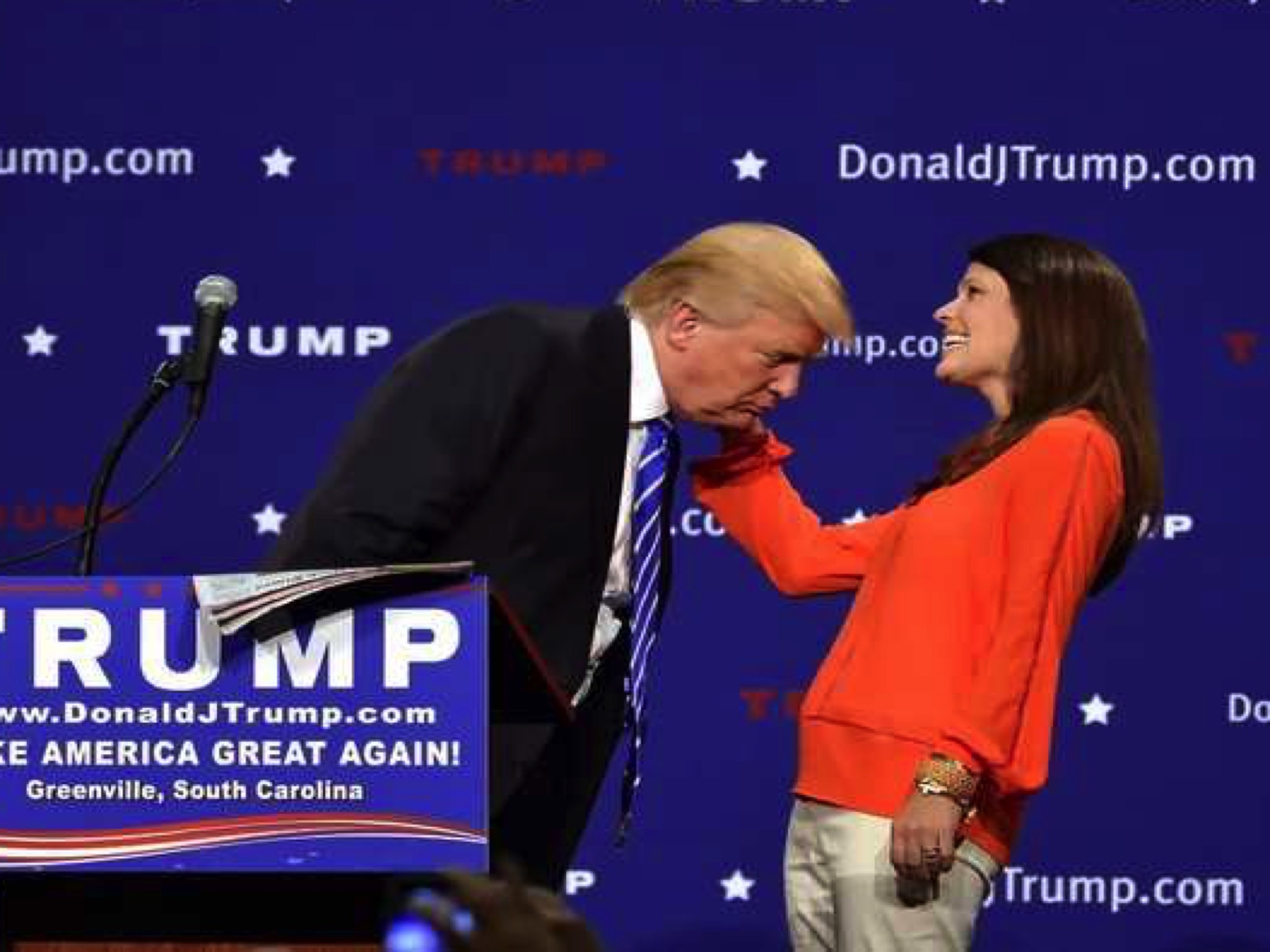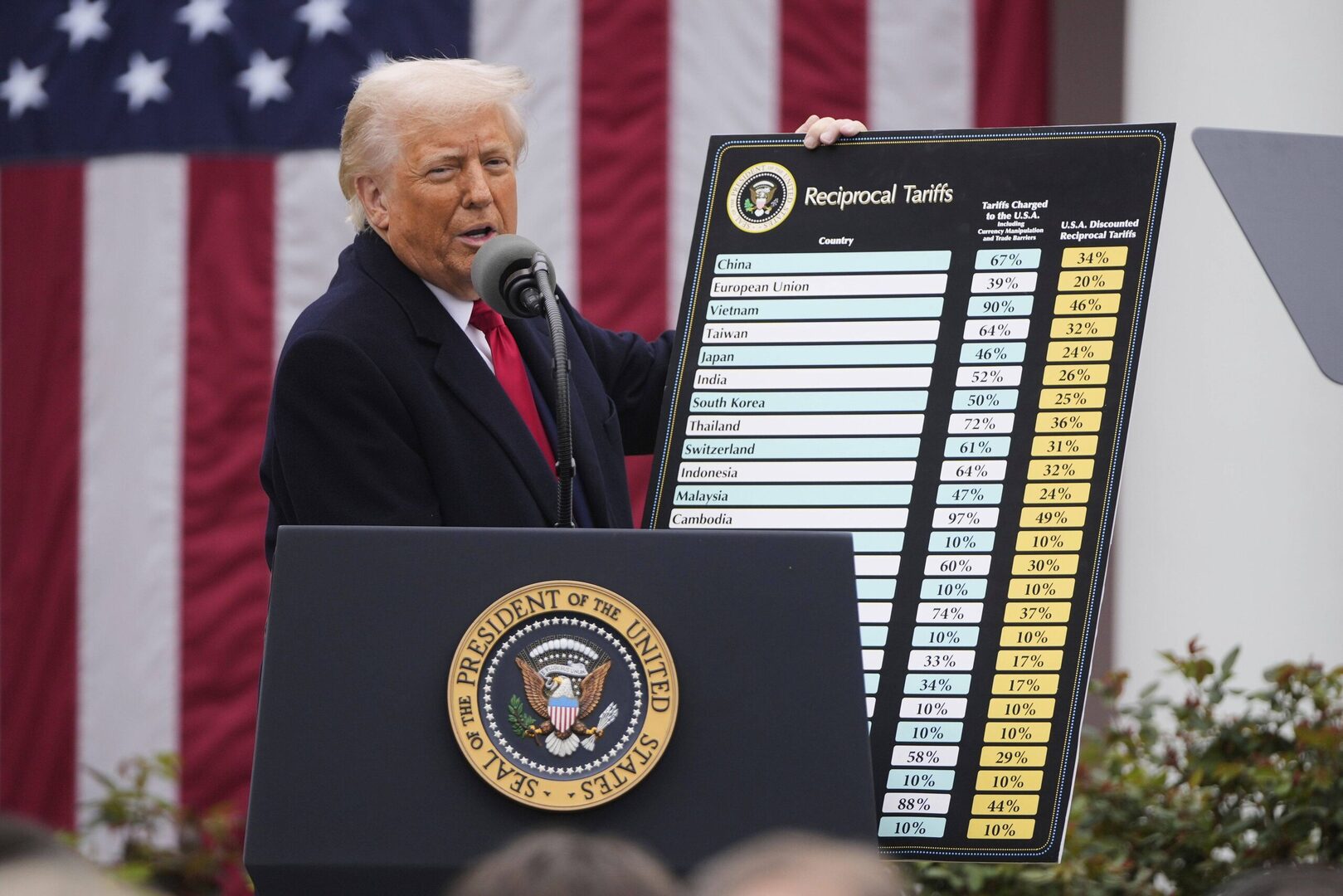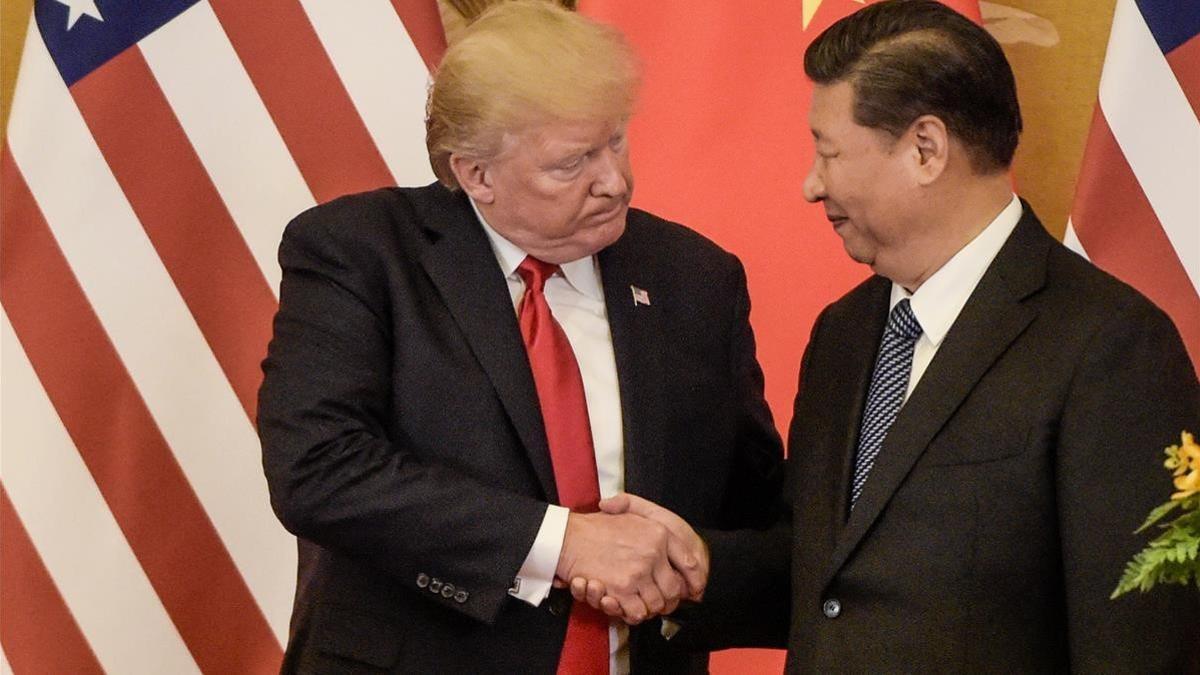Akhenaten or Trump, the leader has always been able to use the weakest
- Although it is not entirely true that history does not repeat itself, neither is the old saying “Nihil novum sub sole” (Nothing new in the sun) a lie. In human communities there are always a few who, in one way or another, want to send others, gods, ideas, hierarchies, fears and hatreds, able to satisfy their yearning for power. In addition to the economic and energy nature of the crisis, the characteristics of the leaders, bosses and tyrants should be taken into account. You can track them through history.

Many are still unable to swallow the fact that a man as unique as Donald Trump has managed to take over the presidency of the world's major empire. The clown, the donkey, the monster… “However, since then we have realized that he has made an ingenious campaign, calculating the mistakes well. The demagogue has wanted to become the leader of the invisible, marginalized and declassified population against the elite authority. The road he has travelled reminds the ancient Greek tyrants, such as Pisistrates of Athens, who are able to seize power through the outrage of the plain people.”
These words are written the day after the U.S. elections in the article “Donald Trump, his peculiar hairstyle and King David.” The author, the historian Christian-Georges Schwentzel, has just published La fabrique des chefs, The genius of the leaders, style. Specialized in the history of ancient Greece and the Middle East, the book compares numerous leaders who have moved from Ajenaten to Donald Trump.
Chiefs, warlords, shefs, tribes, states, or warriors. In all societies power seduces some from the end of prehistory, as in Mesopotamia in Egypt or in Greece. In the twenty-first century we entered the age of charismatic leaders, according to Schwentzel, in the second century. After seeing authoritarian regimes sink outside the World War, fascism first fell the Soviet system, the dictatorships ended in most of Latin America… The return of the powerful leaders began with Vladimir Putin in 1999. Then they have seen closer to us Victor Orban in Hungary, Erdogan is his equivalent in Turkey.
In the case of Trump, he has faced the two aristocratic families that over the past decades have divided the political life of the United States. First the Bush, fighting for Republican leadership by eliminating Jeb Bush. He dismisses Bush III… and goodbye to Clinton II, because Hillary is the princess of a powerful political clan.
Trump is also an aristocrat, a big millionaire, but a marginalized aristocrat, as were the tyrants who had grown up in Greece 2,500 years ago (Athens Pisistrates, Kipselo de Corinth...). Everyone will use the concern of the vulgo to overcome the main clans of the oligarchy. Vladimir Putin has been the first to use the plain people with arguments against the establishment.
Starting with people's fear. Man is essentially milky, says Schwentzel, and that fear will be used by the early leaders of Mesopotamia. Because people fear hunger, shef imposes itself as an intermediary between the population and the gods that guarantee time, harvest and food. What else have Trump or Putin done today with the fear of his compatriots? Fear in one hand, propaganda in the other. “You don’t have to wait for the birth of Machiavelli to find Machiavelli in societies.”
Over and over again in the world, we've seen how a regulated electoral system becomes authoritarian or monarchic. The republican Rome had two heads of state elected for a year two consuls, which was a guarantee that it would not return to the crown. However, a foreign threat will open the way to the concern of the barbarians and pirates for having strong chiefs in the case of Rome.
In the 1st century a. C. C., Rome had today in the region of Turkey, then Ponto, the barbarian king named Mitridates, ironically says Schwentzel, who killed thousands of Romans. The pressure of the barbarians, the pirates, Mitridates… In the end Rome accepted what until then did not seem politically correct, to leave all power in the hands of one man: there is Julius Caesar.
The voice of the Kalparra
Trump has been made a joke for his ugly coat, a yellow tupe that gives a grit. But the businessman who says he hates the elite, along with a lot of outraged people, proudly watches his demass hairstyle, getting up every morning with spray, as if he wore a golden helmet. “He wants to show that he has a beard like no one, special, that gives him a personal brand, an elegance, the mark of being chosen.” Although caricaturists will not know, in the Bible there is someone who bears some sovereign farts that mark the election of God: David, if the Royal Messiah is able to make Goliath bow.
Trump has turned hairstyle into an eye-catching fetish. In the rallies of the election campaign he will repeat the ritual again and again: he asks one of the listeners to come up and touch his hair to certify that he is not a wig. “He wants to show that the ugly, but not the false, is not hypocritical: he is a providential man that people needed. Your coat is authentic, as your words and promises the Americans: it will return greatness, pride, as the slogan Make America Great Again says (EE.UU. it gets re-escalated).
“When the world sinks, people want to have a strong leader who is able to protect America,” he said. He has used with great skill the episode of Judeo-Christian culture in which most Americans have been internalized: David versus Goliath. The misogynic language against Clinton also goes into that subconscious. In the end, it has received the support of the leaders of Catholics and the conservative evangelists. The leader of the most powerful evangelical community has expressly compared Trump with King David, another made parallels with the sins they do with women, that is, that God smells the charism of special men, brave leaders who choose to be herdsmen of their herds and who also have weaknesses.
A charism? With a view to the present day, as in the old story, Schwentzel sees that charism is not so much the interior of the leader, but that of the people who want to put themselves on their orders. “Charism, like beauty, is subjective. Don’t forget that charisma and charm are words of the same root. The worshippers are the ones who see the charismatic leader. When you say someone feels charismatic, you say you love him in the background. It is a spell for those who want to lead to demonstrate that they have charisma or to give an adequate response to the demand for charism among people.”
Adolf Hitler was not a charismatic in himself, but in that humiliated Germany people felt the need for such a person and came at the right time. He gave them the answer they were anxiously asking for.
Professor Jeffrey Sachs of Columbia University is interviewed by Yanis Varoufakis on the DiEM25 movement’s YouTube channel. This explains that in international politics the United States of America plays poker, Russia plays chess and the Chinese play Go. The latter was... [+]
Washington, D.C., June 17, 1930. The U.S. Congress passed the Tariff Act. It is also known as the Smoot-Hawley Act because it was promoted by Senator Reed Smoot and Representative Willis Hawley.
The law raised import tax limits for about 900 products by 40% to 60% in order to... [+]
Bandera amerikanoz inguratuta, muga-zergen oldarraldi berria iragarri zion munduari Donald Trumpek apirilaren 2an. Geroztik hamaika astindu jasan dituzte burtsek eta nazioarteko merkataritzak. Baina hau ez da zoro baten boxeorako ringa bakarrik: AEBetako politikan hamarkada... [+]
If that's the fear. Donald Trump seems to have come to occupy Washington’s rounded office for a long time. He has a second mandate, but to his close advisers, confirming that he is not joking, he also mentions his rigid goal of changing some isolated numbers in the Constitution... [+]

























